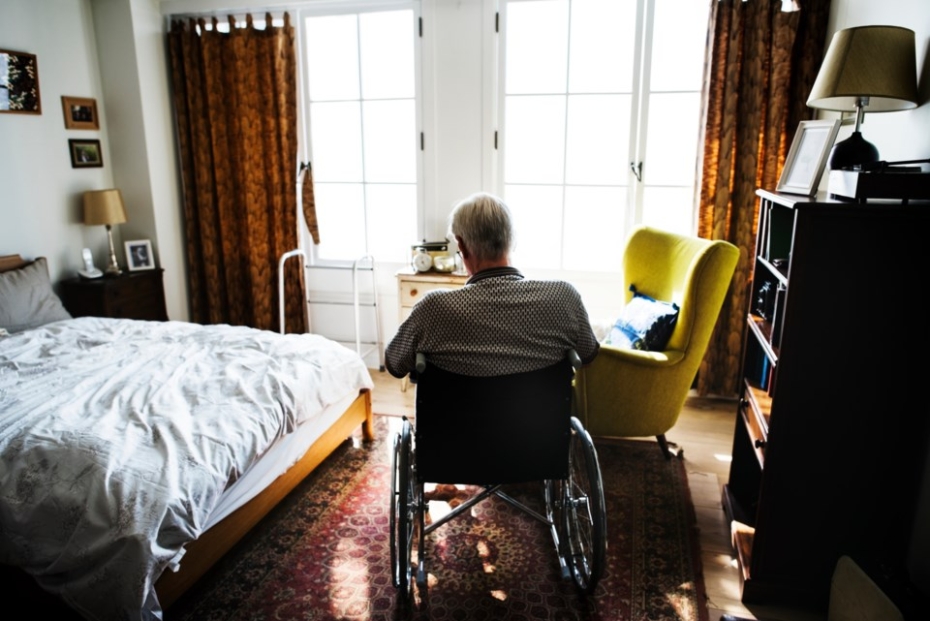Call Us At 519.672.5666
Insights & Articles
When Care Fails: Understanding Negligence in Long-Term Care and Retirement Homes

This article was originally published in Guelph Today.
Neglect in long-term care homes is distressingly common in Ontario, and because of chronic underfunding, staffing shortages, and system neglect, it’s crucial that when care fails, understanding negligence in long-term care and retirement homes is essential.
Last year, a heartbreaking event in Iroquois Falls underscored the risks for residents within long-term care and retirement homes. A 93-year-old resident suffered a serious injury, after a staff member’s medication error. He was hospitalized and passed away days later.
The staff member was charged by the OPP with criminal negligence causing bodily harm. Maddison Watson, a personal injury lawyer at McKenzie Lake Lawyers in Guelph says, “This case shines a light on the importance of accountability in care settings and understanding how negligence claims in Ontario’s long-term care and retirement homes is essential to protecting loved ones and seeking justice when preventable harm occurs.”
Deciding to move a loved one into a long-term care facility is never easy but it is often the best option if they need support and assistance. In Ontario, many homes provide excellent care, but unfortunately not every story reflects this standard.
What is Nursing Home Negligence?
Nursing home negligence is a broad term that captures situations where residents in long-term care or retirement homes do not receive the standards of care that they deserve. It can involve many types of actions or inactions, such as failing to provide timely medical attention or proper supervision.
Each instance can have serious consequences, underscoring the responsibility caregivers have to ensure residents are treated safely, with dignity and respect. Watson says, “Watch for red flags with simple things like being in the same clothing or if they are left in unsanitary conditions, it can lead to the assumption that staff are not checking in on them as often as they should.”
Negligence can also include,
- Unexplained injuries such as bedsores, bruises and cuts
- Medication mistakes or overdosing
- Emotional or psychological downturns including an unusual fear of staff
- Weight loss or dehydration could mean they’re not receiving adequate food, water, or specific dietary requirements
- Sudden health decline or death
These indicators may point to serious negligence, including inadequate supervision, unsafe living conditions or failure to provide appropriate medical care.
COVID was a Blessing in Disguise
The COVID crisis revealed the dangers and systemic negligence with long-term care and retirement homes. It prompted families to ask difficult questions and demand better standards. Most importantly, it has raised awareness about the deficiencies in the system. At the same time, the spotlight highlighted the work of the incredible staff members. Watson says, “There are very compassionate and dedicated staff working in long-term care homes.”
If Concerns Arise
Under Ontario law, residents have rights under the Fixing Long-Term Care Act, the Retirement Homes Act, and the Resident’s Bill of Rights. Maddison Watson says, “These basic rights include dignity, privacy, informed consent, and freedom from abuse or neglect.” The Resident’s Bill of Rights is a legal agreement between the resident and the long-term care home that is embedded in the provincial legislation of Fixing Long-Term Care Act, and can be found at the Ontario Association of Residents’ Council (OARC).
If you suspect your loved one is the victim of negligence or mistreatment, the first step you should take is to document everything, including dates, injuries, communications, staff names and then speak to the facility’s management. Watson says, “You can speak to the Director of Care, Charge Nurse or the Executive Director as there may be reasonable explanations for certain concerns that don’t necessarily point to negligence.”
Depending on their nature, the issues can be reported to the Ministry of Long-Term Care as they do have a Family Support & Action Hotline (1-866-434-0144). If you are still not satisfied, you can contact Ontario’s Patient Ombudsman.
When Should you Contact a Lawyer?
When a loved one suffers harm in a long-term care or retirement facility, families often experience deep emotional distress and feelings of guilt. Maddison Watson advises, “If you suspect negligence or if an injury has occurred due to negligent actions, it’s important to consult a lawyer as soon as possible. Having documentation ready in advance can make a significant difference. Even if evidence is limited, speaking with a lawyer early on can still be beneficial.
It must be shown that the facility or its staff breached their duty of care and that the breach caused harm or death, and that the harm resulted in damages such as pain and suffering. Time limits can apply, so seeking legal advice early is crucial. Advocating for your loved one is important.
Additionally, courts in Ontario are recognizing the Golden Years Doctrine, a legal principle that acknowledges how injuries can weigh more heavily on older adults, potentially justifying higher awards for pain, suffering, and diminished quality of life.
Families deserve clarity and accountability. Maddison Watson shares, “I regularly speak with individuals to guide them through what these types of claims involve. In some cases, there may not be a legal path forward, but it’s still valuable for families to recognize the warning signs and understand what steps to take if something happens in the future. Every resident deserves to be treated with dignity and receive proper care.”
If you have concerns about the care your loved one is receiving or if they have suffered harm, Maddison Watson is an experienced and compassionate personal injury lawyer who is here to help.
This article was written by Personal Injury Lawyer, Maddison Watson. For additional information please do not hesitate to contact her at maddison.watson@mckenzielake.com or 226-971-0019.
If you require assistance with any Personal Injury matter, speak to a Personal Injury Lawyer at McKenzie Lake Lawyers LLP by calling 519-672-5666.

